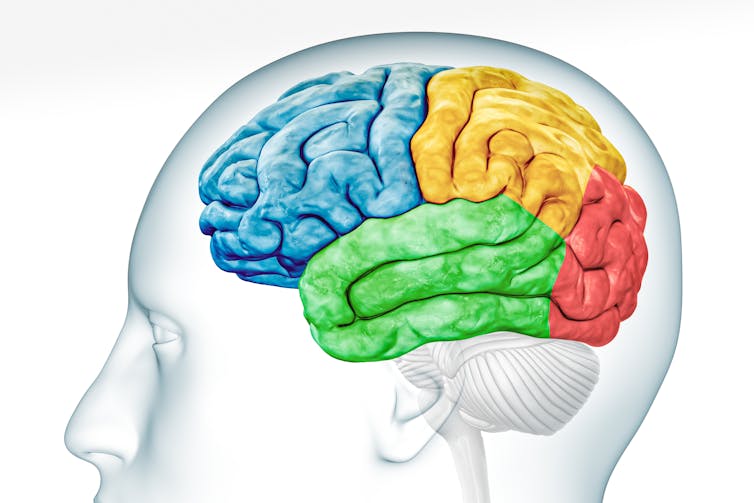"I expect a semi-dystopian future with substantial pain and suffering for the people of the Global South," one South African scientist told The Guardian. "The world's response to date is reprehensible—we live in an age of fools."
"What blew me away was the level of personal anguish among the experts who have dedicated their lives to climate research."
The survey was conducted by The Guardian's Damian Carrington, who reached out to every expert who had served as a senior author on an Intergovernmental Panel on Climate Change (IPCC) report since 2018. Out of 843 scientists whose contact information was available, 383 responded.
He then asked them how high they thought temperatures would rise by 2100: 77% predicted at least 2.5°C and nearly half predicted 3°C or more.
"What blew me away was the level of personal anguish among the experts who have dedicated their lives to climate research," Carrington wrote on social media. "Many used words like hopeless, broken, infuriated, scared, overwhelmed."
The 1.5°C target was agreed to as the most ambitious goal of the Paris agreement of 2015, in which world leaders pledged to keep warming to "well below" 2°C. However, policies currently in place would put the world on track for 3°C, and unconditional commitments under the Paris agreement for 2.9°C.
The survey comes on the heels of the hottest year on record, which already saw a record-breaking Canadian wildfire season as well as extreme, widespread heatwaves and deadly floods. The first four months of 2024 have also been the hottest of their respective months on record, and the year has already seen the fourth global bleaching event for coral reefs.
"They can say they don't care, but they can't say they didn't know."
"I think we are headed for major societal disruption within the next five years," Gretta Pecl of the University of Tasmania told The Guardian. "[Authorities] will be overwhelmed by extreme event after extreme event, food production will be disrupted. I could not feel greater despair over the future."
Scientists said that governments and companies that profit from the burning of fossil fuels had prevented action. Many also blamed global inequality and the refusal of the wealthy world to step up, both in terms of reducing their own emissions and helping climate vulnerable nations adapt.
"The tacit calculus of decision-makers, particularly in the Anglosphere—U.S., Canada, U.K., Australia—but also Russia and the major fossil fuel producers in the Middle East, is driving us into a world in which the vulnerable will suffer, while the well-heeled will hope to stay safe above the waterline," Stephen Humphreys at the London School of Economics said.
Despite their grim predictions, many of the scientists remained committed to researching and speaking out.
"We keep doing it because we have to do it, so [the powerful] cannot say that they didn't know," Ruth Cerezo-Mota, who works on climate modeling at the National Autonomous University of Mexico, told The Guardian. "We know what we're talking about. They can say they don't care, but they can't say they didn't know."
Others found hope in the climate activism and awareness of younger generations, and in the finding that each extra tenth of a degree of warming avoided protects 140 million people from extreme temperatures.
"I regularly face moments of despair and guilt of not managing to make things change more rapidly, and these feelings have become even stronger since I became a father," said Henri Waisman of France's Institute for Sustainable Development and International Relations. "But, in these moments, two things help me: remembering how much progress has happened since I started to work on the topic in 2005 and that every tenth of a degree matters a lot—this means it is still useful to continue the fight."
Peter Cox of the University of Exeter added: "Climate change will not suddenly become dangerous at 1.5°C—it already is. And it will not be 'game over' if we pass 2°C, which we might well do."
"I'm not despairing, I'm not giving up. I'm pissed off and more determined to fight for a better world."
Many of the scientists who still saw a hope of keeping 1.5°C alive pinned it on the speeding rollout and falling prices of climate-friendly technologies like renewable energy and electric vehicles. Also on Wednesday, energy think tank Ember reported that 30% of global electricity came from renewables in 2023 and predicted that the year would be the "pivot" after which power sector emissions would start to fall. Experts also said that abandoning fossil fuels has many side benefits such as cleaner air and better public health. Though even the more optimistic scientists were wary about the unpredictable nature of the climate crisis.
"I am convinced that we have all the solutions needed for a 1.5°C path and that we will implement them in the coming 20 years," Henry Neufeldt of the United Nations' Copenhagen Climate Center told The Guardian. "But I fear that our actions might come too late and we cross one or several tipping points."
Several scientists gave recommendations for things that people could do to move the needle on climate. Humphreys suggested "civil disobedience" while one French scientist said people should "fight for a fairer world."
"All of humanity needs to come together and cooperate—this is a monumental opportunity to put differences aside and work together," Louis Verchot, based at the International Center for Tropical Agriculture in Colombia, told The Guardian. "Unfortunately climate change has become a political wedge issue… I wonder how deep the crisis needs to become before we all start rowing in the same direction."
The publication of The Guardian's survey prompted other climate scientists to share their thoughts.
"As many of the scientists pointed out, the uncertainty in future temperature change is not a physical science question: It is a question of the decisions people choose to make," Texas Tech University climate scientist Katharine Hayhoe wrote on social media. "We are not experts in that; And we have little reason to feel positive about those, since we have been warning of the risks for decades."
Aaron Thierry, a graduate researcher at the Cardiff School of Social Sciences, pointed out that The Guardian's results were consistent with other surveys of scientific opinion, such as one published in Nature in the lead-up to COP26, in which 60% of IPCC scientists said they expected 3°C of warming or more by 2100.
James Dyke of the University of Exeter's Global Systems Institute argued that there was room for scientists to share more negative thoughts without succumbing to or encouraging defeatism.
"I hear the argument that we must temper these messages because we don't want people to despair and give up. But I'm not despairing, I'm not giving up. I'm pissed off and more determined to fight for a better world," Dyke said on social media.
NASA climate scientist Peter Kalmus shared the article with a plea to "please start listening."
"Elected and corporate 'leaders' continue to prioritize their personal power and wealth at the cost of irreversible loss of essentially everything, even as this irreversible loss comes more and more into focus. I see this as literally a form of insanity," Kalmus wrote, adding that "capitalism tends to elevate the worst among us into the seats of power."
However, he took issue with the idea that a future of unchecked climate change would be only "semi-dystopian."
"We're also at risk of losing any gradual bending toward progress, and equity, and compassion, and love," Kalmus said. "All social and cultural struggles must recognize this deep intersection with the climate struggle."




